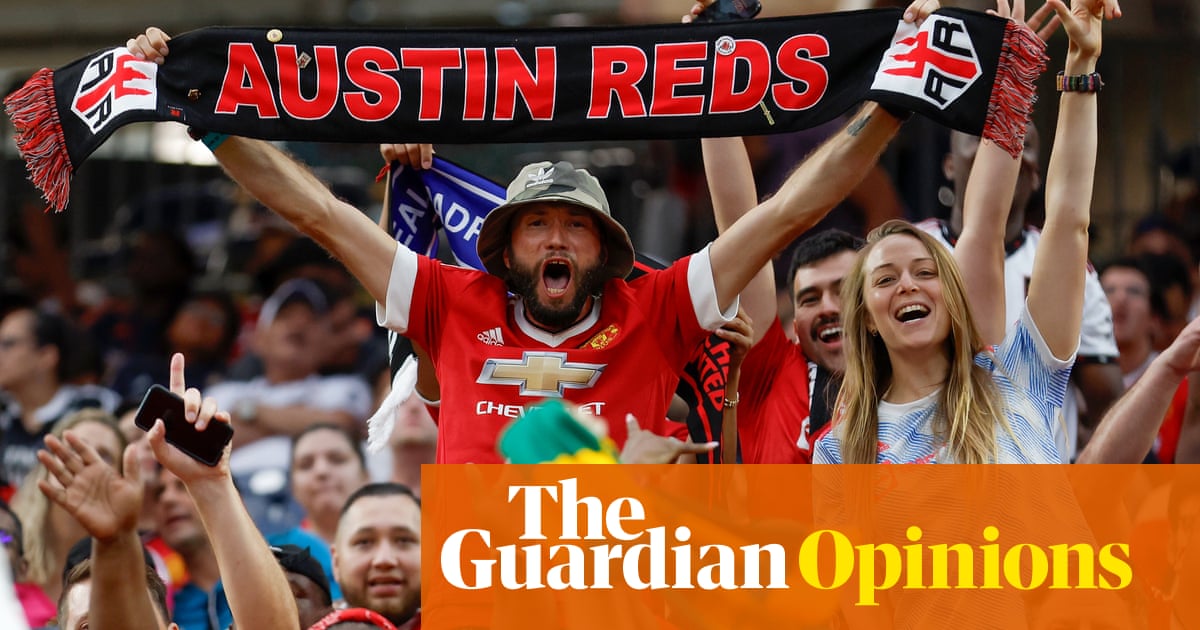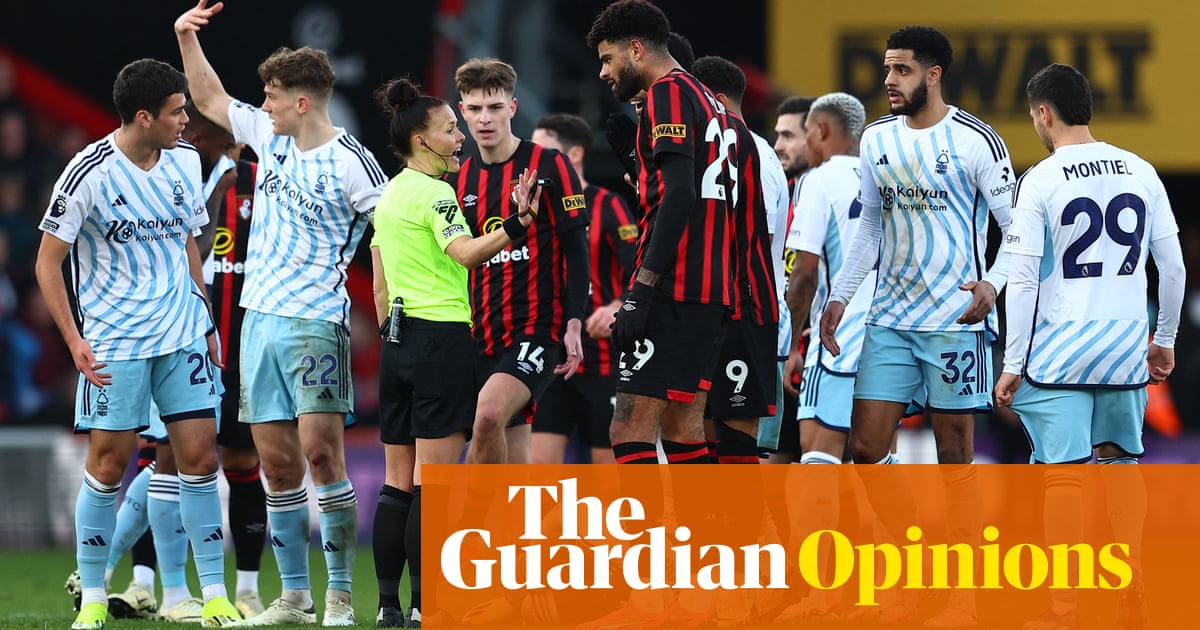
The dream – or nightmare – of a 39th Premier League match in America has drawn a little closer. After reaching a settlement with US promoter Relevent Sports, Fifa last week signaled it will consider changes to its policy of blocking league matches from being played outside the league’s home country. The indication that Fifa’s thinking on the issue may be evolving in a more flexible direction will be welcomed by Europe’s top clubs and deplored by football traditionalists.
For clubs, the commercial case is clear. This is an argument anchored not in culture but money. The work of evangelizing soccer is already done; the sport is not like American football, say, or rugby league, or basketball, or even cricket, which are still trawling the globe for converts and regularly hold matches overseas. In the world of professional sport, football is No 1 and probably always will be. Taking chunks of the European domestic season on the road represents a juicy financial opportunity, potentially unlocking valuable revenue to help weather the storm of a newly restrictive regulatory environment and bringing teams closer to the millions of football fans who live outside Europe.
Cup competitions are already being staged away from home – the Italian and Spanish football federations, for instance, have sold the hosting rights to their second-tier cups to Saudi Arabia – and top clubs regularly tour the Americas and Asia in preseason. Theoretically it’s only a small step from that to transplanting league matches abroad – Barcelona attempted to host a La Liga mach against Girona in Miami in 2018, which led to the Relevent lawsuit. These could take place anywhere, but the Gulf and the US seem the most likely destinations.
Staging a 39th match in America has long been a fever dream of the Premier League. The idea was floated and abandoned in the 2000s, generating backlash so fierce the project now has its own Wikipedia page. More recently New Jersey governor Phil Murphy has suggested his state – now confirmed as the venue for the 2026 World Cup final – as the ideal stage for an overseas extension of the English top-flight season. As anyone who saw the hordes of Premheads pleading for a word of acknowledgment from [checks notes] Joleon Lescott in the background of NBC’s recent Premier League fan fest in Nashville can attest, even crumbs of contact with the flesh and blood of European club football are enough to send the average US football fan into paroxysms of delight. Just imagine the scenes once these fans are given the chance to watch Nicolas Jackson and Noni Madueke bicker over the penalty spot in a proper, points-on-the-table league match. Riots, mass fainting, Cole Palmer stepping up to convert the penalty instead: anything is possible.
Once the north London derby is successfully grafted on to north New Jersey, who can say where the quest for cash may take professional football? Compared to US pro sports, which have mastered the art of turning every moment of the sporting season into a revenue-generating spectacle, Europe’s grand old clubs are relatively inexpert at extracting value from events off the field. Once all those competition draws and transfer windows and points deductions are converted into monetizable units for the overseas fanbase, we could be just a few years away from the Premier League’s independent commissions handing down their financial rulings from Madison Square Garden, “Mandalay Bay Resort & Casino presents the Progressive Insurance Winter Transfer Deadline Day!”, or a special PGMOL meet and greet on the Jeddah Corniche (tickets required, respect for VAR optional).
Traditionalists will be aghast at these suggestions, and rightly so. Football, perhaps more than any other sport, has a potent sense of place, from which its traditions and rituals are inseparable. Manchester United v Liverpool at Philadelphia’s Lincoln Financial Field might be good business, but it’s no longer really the same game; it’s football, but defanged and kitschified, drained of the genuine stakes that remain vital to the sport’s enduring cultural power. It’s football, but not really from England any more; it’s the Global English Premier League, a fungible asset and floating signifier that can be pulled from its home soil and plugged into any climate for any purpose at any time. It’s sport, in other words, from nowhere.
This is the story that’s usually told in opposition to “Game 39” and similar schemes for sending domestic leagues off on a week abroad – that the dismemberment of these competitions into standalone export-grade packages violates heritage and disrespects the home fanbase. But plonking a matchday down in suburban Texas or Miami would also, I believe, do a disservice to football fans overseas.
These events would, it’s important to stress, be idiotically popular. After years of subsisting on the weak sauce of pre-season tours and B-list exhibition matches, most fans outside Europe would be naturally overjoyed at the chance to watch a legitimate league match live. But obliterating the distance that separates the “foreign” fan from the real thing – the live match, the stadium experience, the massed ranks cooing in the stands – would also, I think, destroy the romance of watching football overseas. The beauty of enjoying these matches from afar is precisely in the distance that the spectator holds from the action – in the notion of Europe and European football that non-European fans build for themselves. Fan culture in the world beyond a club’s traditional turf has a texture all to itself, and is no less beautiful or valid for its mutation from the norms established at home base.
If I’m not watching at home, I watch most of my live European club football at a bar in Brooklyn. The group identities of the fans who gather there bear some resemblance to those of their autochthonous counterparts, but there are important divergences too; a Manchester United fan in the outer boroughs of New York is never exactly the same as a Manchester United fan in Manchester (or – honk – London, for that matter). Each of the fan groups at my Brooklyn bar has its own weird charisma. The Chelsea fans: a mix of high school history teachers, drug dealers, and statistical bores who are frighteningly available for any match on the calendar. The Spurs fans: part-time DJs and wannabe edgelords with strong opinions about breakfast tacos. The Arsenal fans are usually too tired to make it out to watch their team; on the rare occasion, you’ll see one or two slumped at the bar, grousing about the lack of minutes for Emile Smith Rowe, raising a dadly, seen-it-all-before “Arsenal, Arsenal” whenever Martin Ødegaard makes a dart inside. The single known Manchester City fan has a habit of screaming “ROBOT” whenever Erling Haaland scores. Whether it’s in New York or Nebraska or Kentucky or Kuala Lumpur, overseas fan culture is just as sensitive to the vagaries of place as fan culture in the “sending” city is.
The moment the Premier League becomes a live American entertainment on par with any other, it will inevitably lose some of its faraway luster – it’ll be just another roll at the buffet. And the fans who tune in to English matches every week on American TV will also shed some of their oddball charm.
The cultural damage will also extend in the other direction, of course, as the frothing Atlanticists who run the Premier League race to sex the product up with a generous injection of American Cringe. Live renditions of the US and UK national anthems before each match, half-time shows with increasingly desperate talent bookings, mascots and marching bands: make no mistake, once the English top flight comes Stateside we’re in for all of this, and more. The Premier League is not so culturally self-assured that it won’t go full Pat McAfee at the first sight of Rockaway Beach. And this is before we even get to the Instagram content: Haaland jawing into a smoked beef rib by the side of some legendary pitmaster of the Dallas-Fort Worth metroplex, Palmer at the Hollywood Walk of Fame giving a pallid thumbs up under the California sun, Bruno Fernandes strolling the Jersey Shore. It hasn’t even started yet and I already want it to end.
A 39th Premier League round in America would demean everything touching it: the teams that travel here, the local fans, the competition itself. A league that has already lost a good portion of its soul would move another step closer to spiritual oblivion. There is one thing that European football – intimate, atavistic, elegant, and proud – is not built to survive, and it is the 90-minute, multiple-leg trip from downtown Manhattan to MetLife Stadium in East Rutherford, New Jersey.
If the Premier League has any sense it will resist the idiot urge to extend its season overseas. Some things simply don’t belong together. You can’t make a beaver have sex with a giraffe. (Well, you probably can, but you shouldn’t.) Nor should you make Europe’s top clubs “work” for a live audience in America, or Saudi Arabia, or anywhere else for that matter. Those clubs, and the sagas of athletic daring and despair they produce on a weekly basis, already work for millions of football fans beyond Europe’s borders. European football is no more in need of Americanization than American football fans are in need of Europeanization. Not everything needs to be minced and made digestible for the American consumer. America, if only occasionally, is capable of keeping its distance, of appreciating beauty from afar.












